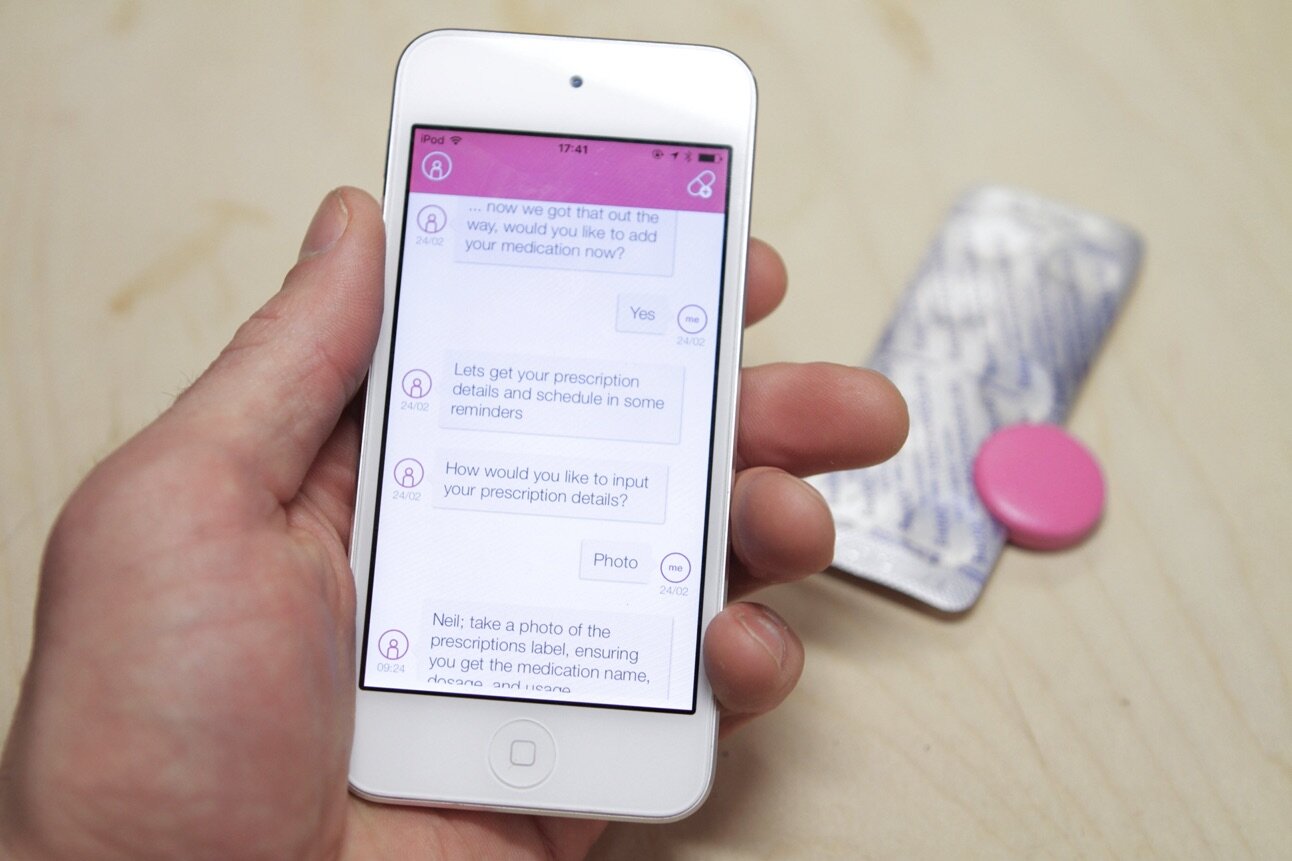
How can we elicit positive behavioural change using a network of ambient connected devices?
Nightingale & Flo
“Can you carry a doctor in your pocket that helps you stay on track with your medication?”
Working prototype ecosystem
Conversational UI
Smart bottle / blister pill pack
Event and content strategy
New healthcare clients for Method
Earned Media Coverage
Regular requests to purchase the prototype
Back in 2016 I negotiated free access to IBM’s just released Watson API’s. We set about exploring what was possible when designing with data and machine learning technology.
I quickly focussed on the opportunity for AI in healthcare, landing on Medical compliance which costs billions of dollars world-wide. I was curious to see if a network of distributed interfaces around the home and in your pocket could deliver a more human and therefore effective way to help patients stay on track with their medication.
Briefing in a team of creative technologists and designers we worked on nightingale with the ambition to learn new skills and create more opportunities to network and engage with the healthcare sector.
The prototype solution included an app called Flo and a series of connected devices. Flo was able to read a prescription from a pill box using Watson’s computer vision API and deliver a guided program to the user via a conversational interface. The bot also offered softer, natural language support to help with frequent questions and pain points such as stomach upsets that can often lead to medication being ditched. We also experimented with a pill bottle and blister pack that could register when and if the medication had been taken.
To this day Method is approached by entrepreneurs and NGO’s looking to use the prototype in their work. Frustratingly the business model prevented us from productising the working prototype.


![Nightingale matri]x.jpg](https://images.squarespace-cdn.com/content/v1/5ecd1b156a831b25514d91f1/1591782739971-VRCTKNY5UTKUZF2NMKVR/Nightingale+matri%5Dx.jpg)



